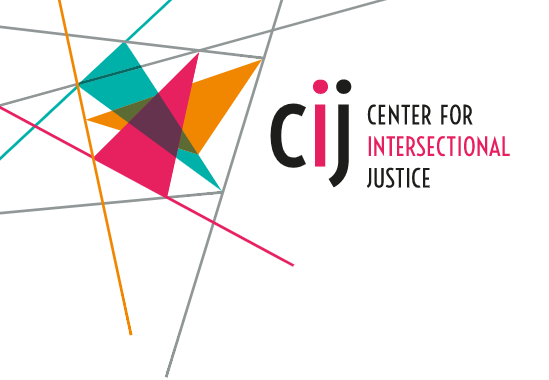
One of the most important insights of authentic anarchist philosophy is that the human species is one entity.
Its rich and necessary diversity, we insist, is part of an overall coherence and commonality as a clearly-definable living organism.
This represents a threat to the dogma of the ruling clique, who claim that we would all constantly be at each other’s throats were it not for the firm hand of their top-down control.
While they themselves recognise no borders to their dominion, their divide-and-rule strategy has always involved classifying and separating the rest of us according to “race”, “nationality”, or, indeed, individual self-interest, in a bid to ensure that we remain isolated, divided and collectively powerless.
I have been shocked, therefore, in recent years to see so many anarchists embrace “intersectionality”, sometimes referred to more broadly as identity politics.
This way of seeing the world is, in my view, entirely incompatible with the anarchist vision, to the extent of representing its inversion.

It is founded on the definition of certain individuals as victims, the objects of various kinds of social oppression or domination.
This disempowered human-as-victim apparently only finds points of common interest with other individual members of the species in terms of an “intersection” of oppressions.
This is the opposite of the “big picture” approach at the heart of anarchism, which grasps the enormity of the domination, theft, imposition, duplicity and hypocrisy of the ruling system and hopes to inspire a radical and fundamental revolt which will set humanity free to live otherwise.
The “intersectional” approach instead effectively presents social injustice as a series of separate and very narrow “problems” for which “solutions” could be provided within the framework of the existing system.
If only it could provide “inclusivity” and “equality” for its favoured categories of oppressed victims, then all would be well, pending the discovery of further particular forms of oppression.
Far from being revolutionary, it hides the need for radical and fundamental change behind its limited shopping list of reforms.
My concerns about the intersectional approach have been deepened by the way in which it is so enthusiastically adopted by impact capitalists, who have been funding ostensibly “radical” groups pushing this ideology.
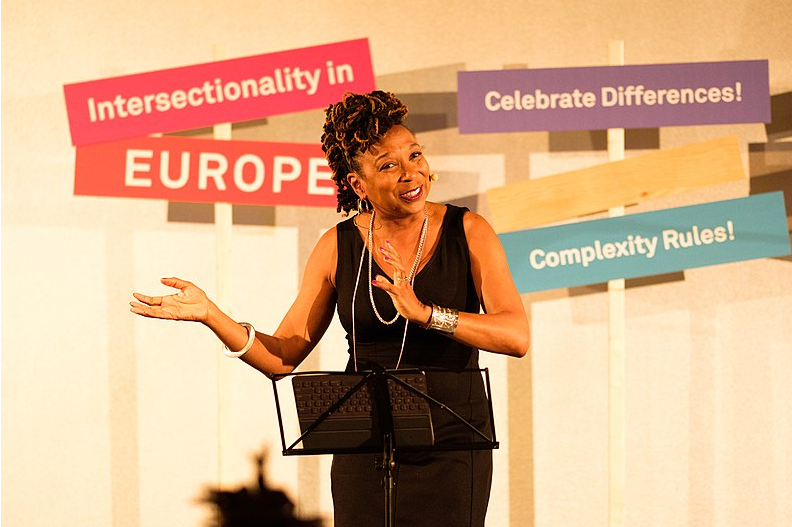
The founder of intersectionality is generally considered to be Kimberlé Crenshaw (pictured), a professor at Columbia Law School in New York, where she set up the Center for Intersectionality and Social Policy Studies.
She is also the co-founder and executive director of The African American Policy Forum, a New York think tank which works alongside the CISPS.
Crenshaw is, additionally, honorary president of the Center for Intersectional Justice in Berlin.
Set up in 2017, it describes its mission as being “to make anti-discrimination and equality policy more inclusive and effective in Europe”.
I have to admit that the word “inclusive” immediately rang alarm bells for me, as it is frequently used by the world of impact investment.
And when I found the CIJ’s list of funders on their website my suspicions were confirmed.
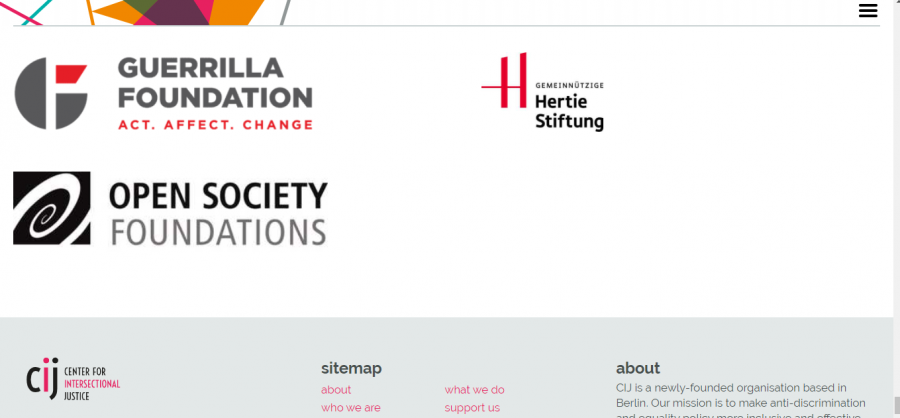
Top of the list of three is Guerrilla Foundation, an organisation thoroughly exposed in this November 2020 article as being engaged, along with Klaus Schwab’s World Economic Forum, in promoting impact capitalism under cover of funding “systemic change”.
Second is George Soros’s Open Society Foundations. Co-chair of the the Open Society Initiative for Europe in Berlin is none other than Rose Longhurst of the UK’s Edge Fund, whose close connection to impact capitalism I investigated earlier this year.
The third of the three funders is Gemeinnutzige Hertie Stiftung, a German foundation with the rather bizarre twin stated aims of “brain research and strengthening democracy”. More on this dubious organisation later.
The “partners & clients” listed on the Center for Intersectional Justice’s website are also far removed from the anti-establishment politics with which they (like Guerrilla Foundation and Edge Fund) want us to imagine they are aligned.
They include:
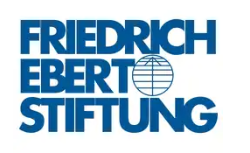
Friedrich Ebert Foundation, which in 2003 initiated the Global Atlanticists Network “to nurture the shared ideals of the Transatlantic relationship: democratic values, robust trade, and the NATO alliance rooted in collective security“.
Fulbright Germany: “The only binational exchange organization in Germany with a US focus“.
Human Rights Watch, whose “partners” include investment company Eurazeo plus the Fred Foundation, Oak Foundation and Ford Foundation, all three of which are heavily involved in impact investment.
Center for Feminist Foreign Policy, whose advisory council features Scheaffer Okore, “a thought leader who is currently among 10 global leaders serving on the Gates Foundation’s Goalkeepers advisory board“.
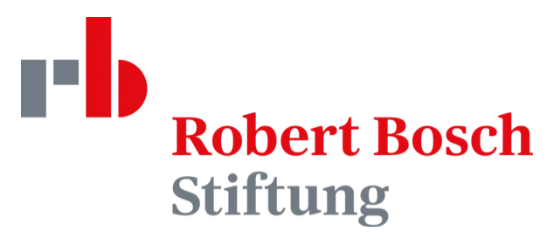
The Robert Bosch Stiftung, whose Robert Bosch Academy “contributes to building an international network of opinion leaders, decision makers and experts” and whose International Alumni Center in Berlin “offers practical support in the design of impact-oriented networks“.
Thoughtworks, a US tech company which aims to “amplify positive social change and advocate for an equitable tech future” by means of its “social impact strategy“.
Ashoka Deutschland Fellowship, part of the US organisation founded by “godfather of social entrepreneurship” Bill Drayton, and which is deeply connected to impact investment and Klaus Schwab’s Global Shapers.
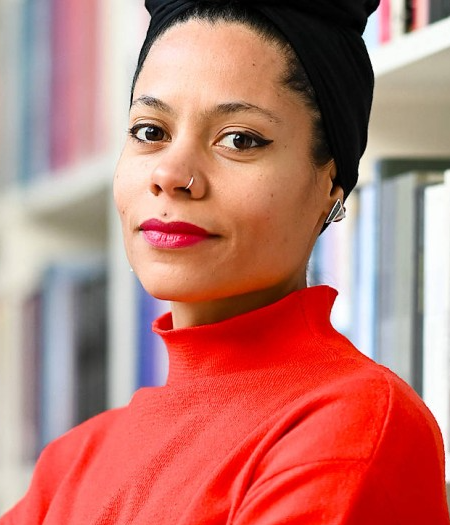
The CIJ’s founder and executive director Emilia Zenzile Roig (pictured) is in fact an Ashoka Fellow, which means that she (like Rob Hopkins of Transition Towns fame) is paid by them.
A key article on the Ashoka site makes it clear that the task given to Roig and the CIJ is to impose intersectional thinking on a European culture whose humanist values are deeply resistant to its agenda of classification and separation.
We learn that she “wants to change the way discrimination is understood and tackled in European societies”.
In the old world, “the mobilization of intersectionality remains challenging in a context that overemphasizes colorblindness and postracialism.
“The widespread reluctance to face the significance of race and the reality of racism is especially pronounced in Germany which rejects, for historical reasons of the Holocaust, collecting any demographic data on race and ethnicity in connection to crimes”.
Overemphasizing colorblindness and questioning “the reality of race” (ie: being anti-racist) does not sound like a problem to me.
And surely contemporary Germans are quite right to be concerned about attempts to collect data in order to link potential criminality to ethnic identity?
Roig thinks otherwise and her mission is “shifting the anti-discrimination framework towards one where intersectionality is eventually institutionalized”.
Her efforts have been showcased by The Journal of Beautiful Business, the online magazine of “global think tank” the House of Beautiful Business (“a place like no other for intimacy, intelligence, and impact“).
And on November 25 2020 Roig was interviewed in Forbes magazine as part of the Ashoka Contributors Group, under the informative heading of “Entrepreneurs. Insights, how-tos, and stories from the world of social impact”.
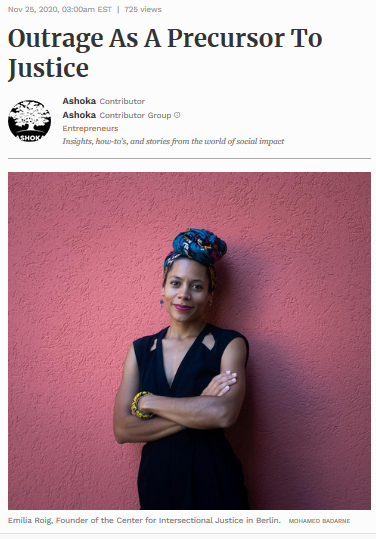
More insights into the “world of social impact” to which Roig belongs come from the ‘Clients and Collaborations’ section of her personal website.
There is a certain overlap with CIJ funders and partners. The Hertie empire and Open Society Foundations are listed, alongside Commerzbank and, of course, Ashoka.
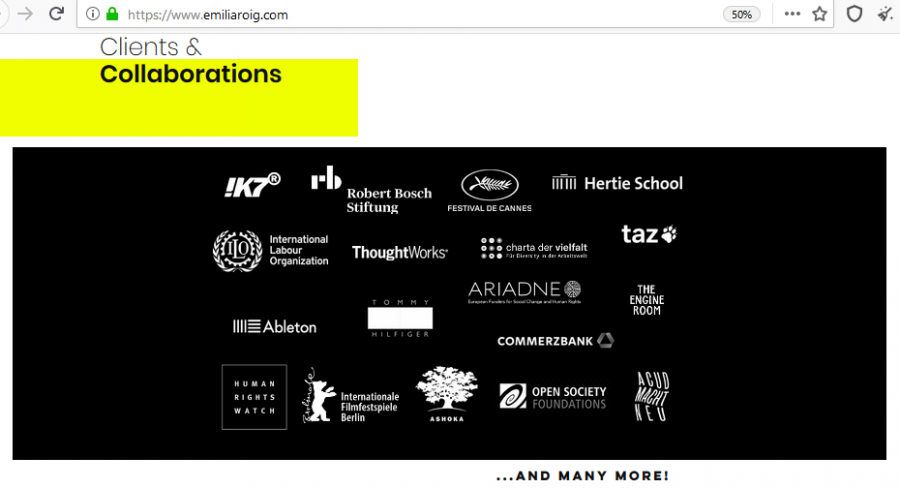
Roig collaborates with an organisation called The Engine Room, whose slogan is “accelerating social change“.
Its website states: “The Engine Room helps activists, organisations, and other social change agents make the most of data and technology to increase their impact“.
Another client/collaborator of note is Tommy Hilfiger, a brand of PVH Corp, whose “matching gift program allows our associates to have their philanthropic donations matched by The PVH Foundation to increase their impact“.
In a 2018 report PVH declared it was “again aligning our strategy with the UN Sustainable Development Goals” and that its “Forward Fashion” strategy involved “priorities in areas where we can have the greatest impact and setting targets that are specific, measurable, and time-bound“.
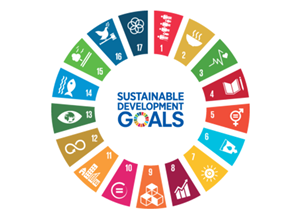
The reference to the UN Sustainable Development Goals will come as no surprise to anyone who has dipped a wary investigative toe into the icy waters of impact capitalism and the Fourth Industrial Revolution to which it is allied.
Researcher Alison McDowell explains: “Powerful interests are using the Sustainable Development Goals to mask their plans to remake the world as a digital panopticon.
“Financiers are going to claim they’re doing positive things with their portfolios by configuring asset allocations to align with ESG (Environmental, Social, and Governance), and that’s where the United Nations Sustainable Development Goals come in.
“It is the sustainability goals that will open the door to smart city infrastructure with facial recognition, cashless economies, big data analytics, and artificial intelligence used to implement broad threat assessments; the threat of natural disasters as well as threats posed by individual dissidents and groups”.
It is significant that Roig is a graduate of Berlin’s Hertie School, until recently known as the Hertie School of Governance, which was founded by the same Hertie Foundation which funds the CIJ.
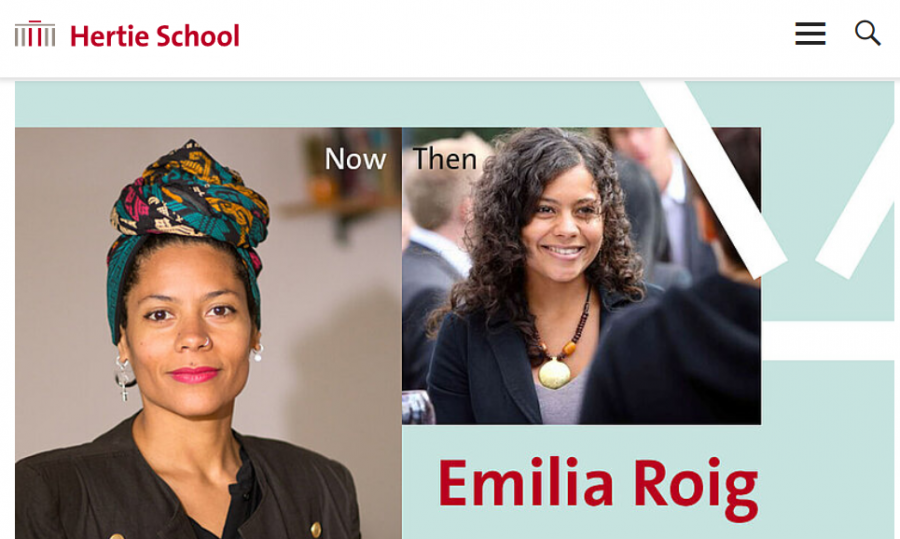
The Hertie School is a partner in the Global Public Policy Network (GPPN) along with Columbia University in New York, the Business Administration School of São Paulo at the Getulio Vargas Foundation, the University of Tokyo, the Lee Kuan Yew School of Public Policy, the Institute of Public Affairs at LSE and Sciences Po, Paris.
The GPPN says it exists “to address the most pressing public policy challenges of the 21st century and, as a result, to have policy impact“.
Its website tells us about a new one-year programme which it is “proud” to have launched: a Sustainable Development Goals Certificate!
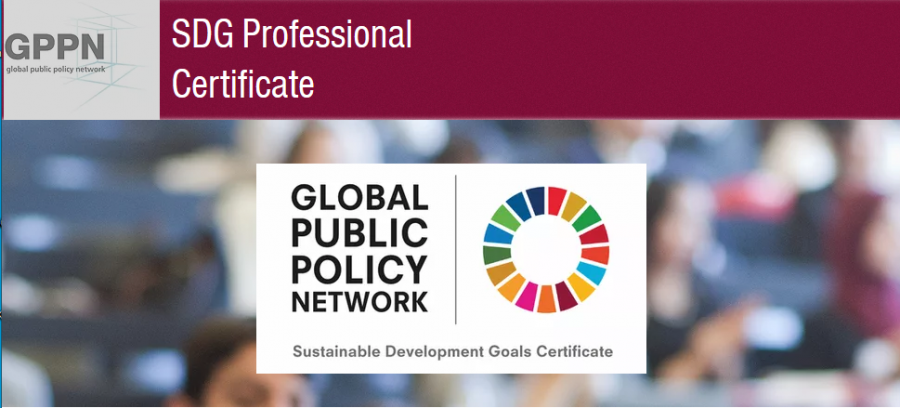
It says: “As part of the United Nation’s 2030 Agenda, having specialized knowledge and hands-on experience on how to meet the SDGs is in high demand from government agencies, international organizations and private companies.
“The UN 2030 Agenda and SDG partnerships truly represent a global effort from the public and private sectors, at the international and local level, to respond to the most challenging questions of our time”.
Unfortunately, GPPN partner Hertie has lately been failing to respond to one particular challenging question of our time, namely its relationship to its own past.
Hertie Foundation received its substantial funds from the profits of the Hertie chain of department stores.
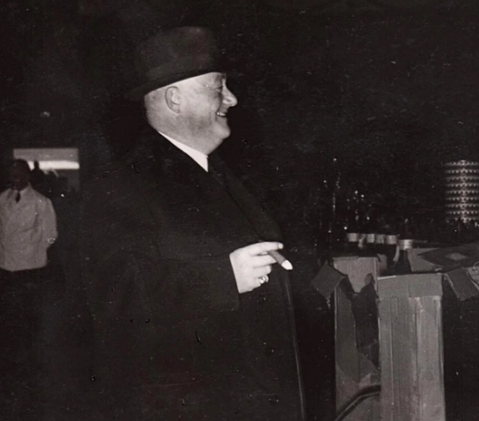
Georg Karg (pictured here in 1938), in whose memory the foundation was established by his heirs in 1974, got his hands on what was originally Herrmann Tietz & Co during the 1930s, when it was “aryanized” by the Nazis and the original Jewish owners pushed out with minimal compensation.
Explains this article: “The pro-Nazi Dresdner Bank and others simply refused to give the company new credit, claiming back a loan of 14 million Reichsmark. Facing bankruptcy, the Tietz brothers were forced to accept the bank’s condition: handing over the operations to an Aryan management”.
Hertie School was set up by the foundation with the goal of preparing selected students for “leadership” positions in government, business, and civil society.
In 2020, German media reported that almost 150 current and former students had come together to challenge the Hertie empire about its past.
Writes graduate Tobias Bünder: “Sadly, so far the history of the Hertie name has been shared with far too few of these future leaders.
“Many other corporations have done much worse and risen to new heights afterwards (Hugo Boss, for example, got big making SS uniforms). Nonetheless, Karg is definitely not without blame for capitalizing on the misfortune of his former employers during the time of a hateful, anti-Semitic political movement”.
There is a certain irony in the fact that Hertie is having to fend off criticism of its record in the Hitler years, while at the same time funding impact-intersectionality, a 21st century public-private partnership bid to control and exploit human beings by means of cold scientific classification along racial and other divisive lines…
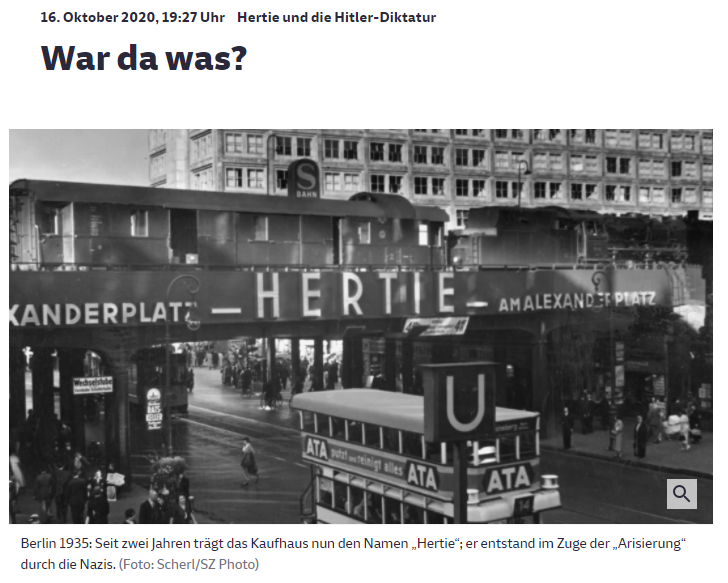
Leave a Reply